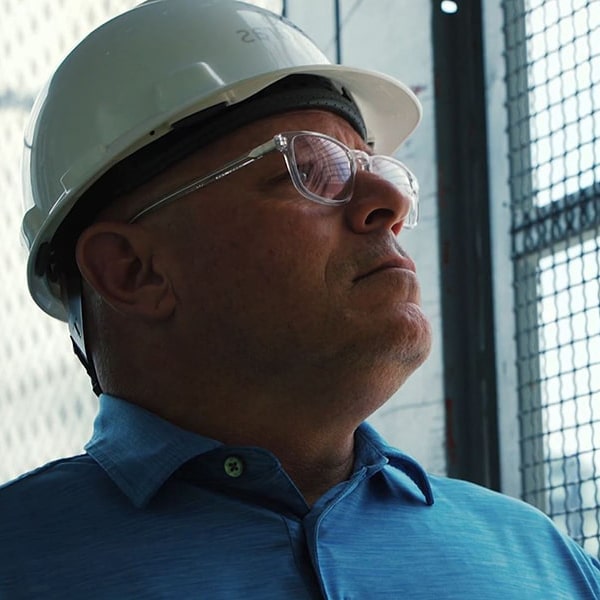David Argus, Director of Operations for Karas & Karas Glass Company and Founder of Boston Phoenix Foundation, has been in the construction industry since he was 18. Back then, he’d planned to do the job for a few years, bank his earnings, and then move on to other things. But he fell in love with working on buildings.
David first experienced “the world of addiction,” as he calls it, through a family member. At the time, he wasn’t at all educated about substance use disorders, but his crash course included detox facilities around the country.
David met more and more people facing the same challenges. As he thought about his work in a high-risk industry, one question began to haunt him:
“Why aren’t we doing everything we can do to help our brothers and sisters?”
Substance use and seeking employment
Because 70% of people facing issues with their substance use are working* it stands to reason that at any given time, most workplaces include people who experience a substance use disorder or are in recovery.
In 2010, David founded Boston Phoenix Foundation, an organization that connects people in recovery with careers in the building trades. Of course, at first it was just him and a partner, working with young people in need of support. But today, the organization makes a powerful difference, working with construction firms like Karas & Karas to recruit and hire workers who are in recovery from a substance use disorder.
According to David, construction workers are six times more likely to develop a substance use disorder. After all, the work is filled with daily bumps, bruises, and worse. It’s all too easy for a post-injury opioid prescription to become a path to a further opioid use disorder.
But construction is a necessary and desirable profession for many. So David brings people in recovery into the construction world, instead of discouraging them.
“Once I have someone who wants to get sober as badly as they want to breathe,” he says, “the carpenters and iron workers in Boston work with me.” Instead of punishing environments that jeopardize their health and recovery, new employees find connection, compassion, and the chance to keep moving forward in life.
Programs like Boston Phoenix Foundation shouldn’t be the exception, he believes. They should be the norm.
Introducing the recovery supportive workplace
Working together, Boston Phoenix Foundation and Karas & Karas have created what’s known as a “recovery supportive workplace” (RSW). An RSW is a work environment that values both the experiences of people who are in recovery from addiction, and the unique perspectives and tools they bring to the workplace.
David offers a simpler explanation: in a recovery supportive workplace, those in charge are looking out for the well-being of their own people.
Imagine working at the edge of a high-rise building under construction, he says. Physical safety is a given – hard hats and other protective equipment, tying off lines to prevent falls, and more.
But a recovery supportive workplace is just as attuned to the need for mental safety. By asking about everyone’s psychological state instead of just checking physical equipment, leaders can ground their teams in a safety mindset before attempting dangerous tasks.
Most importantly, if anyone’s not focused enough – for any reason at all, whether they’re in physical pain, mentally distracted, or impaired by a medication or other substance – they don’t have to pretend just to save face.
The culture at Karas & Karas has benefitted from working with people who are in recovery.
Before this work, David hadn’t realized just how powerful it feels to help others. More than that, he sees creating a recovery-supportive workplace as a responsibility.
“With addiction, you lose connection to everything that you love.” So what does David do with the employees who come to Karas & Karas through Boston Phoenix Foundation?
It’s simple, in the end. “We love them.”
*2018 National Survey on Drug Use and Health, SAMHSA
